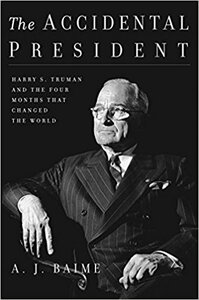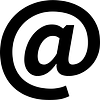Take a photo of a barcode or cover
99 reviews for:
The Accidental President: Harry S. Truman and the Four Months That Changed the World
A.J. Baime
99 reviews for:
The Accidental President: Harry S. Truman and the Four Months That Changed the World
A.J. Baime
Other than the broadstrokes of his presidency, I really didn't know about Truman. I've read and watched a lot of documentaries on FDR and the rest of the Roosevelts but never really understood what happened after. This book changed that for me and gave me a lot to think about. It's focused only on the 4 months after Truman became president which is different from a lot of biographies and makes it feel more clear cut and easy to follow. It also makes it easy to follow the time line of events you probably already knew before reading this book. The author uses first hand accounts from the people directly around Truman and Truman himself as much as possible. This perspective is very different than a lot of books I've read and made a difference of my understanding of various events.
Transition of a president
There are several books on Harry S Truman, but nothing on the pivotal months in between the death of FDR and the end of WWII. This book tells how, from the decision to bomb Japan to the tensions with the Soviet Union, Truman adjusted to his unexpected new role.
There are several books on Harry S Truman, but nothing on the pivotal months in between the death of FDR and the end of WWII. This book tells how, from the decision to bomb Japan to the tensions with the Soviet Union, Truman adjusted to his unexpected new role.
It's almost as if the idea of a full biography had been done or was too daunting; settled on just doing four months. Still, wrote that this wasn't a biography yet the author spent a lot of time on Truman's life from birth to 1945. Best parts were Potsdam.
informative
reflective
medium-paced
informative
reflective
slow-paced
informative
reflective
slow-paced
The author brushed past any hint of racism and antisemitism on Truman's part. I learned quite a bit about Truman but the book was a bit dry
hopeful
informative
inspiring
reflective
medium-paced
I've always liked the story of Harry Truman and enjoyed this book even more than I thought I would. I like these types of biographies that narrow in on a crucial time period instead of covering the whole life. A little bit of time is dedicated to Truman's childhood and early political career. Some of the more memorable points:
- Unlike FDR, Truman was clear with decisions and expectations. He had a businesslike approach to his administration, contrasted to FDR's casualness and intrigue.
- One of Truman's first actions was to chew out the Soviet ambassador for breaking their agreements. Molotov said later he had never been talked to like that.
- Truman placed his family first. One of his first phone calls after the Japanese surrender was to his mom.
- At Potsdam, Truman and Churchill had a 11:00 meeting. For Churchill, this meant waking up early. Truman had already been up for hours. He often woke up before 6:00 AM.
- Truman never wanted to be president, or Vice President.
I really liked the final chapter of the book, with Truman's day told in parallel with the bombing run over Hiroshima. The author covers some of the moral questions around the bomb but draws the simple conclusion that the bomb was a military asset and used as such.
- Unlike FDR, Truman was clear with decisions and expectations. He had a businesslike approach to his administration, contrasted to FDR's casualness and intrigue.
- One of Truman's first actions was to chew out the Soviet ambassador for breaking their agreements. Molotov said later he had never been talked to like that.
- Truman placed his family first. One of his first phone calls after the Japanese surrender was to his mom.
- At Potsdam, Truman and Churchill had a 11:00 meeting. For Churchill, this meant waking up early. Truman had already been up for hours. He often woke up before 6:00 AM.
- Truman never wanted to be president, or Vice President.
I really liked the final chapter of the book, with Truman's day told in parallel with the bombing run over Hiroshima. The author covers some of the moral questions around the bomb but draws the simple conclusion that the bomb was a military asset and used as such.
informative
inspiring
reflective
medium-paced


